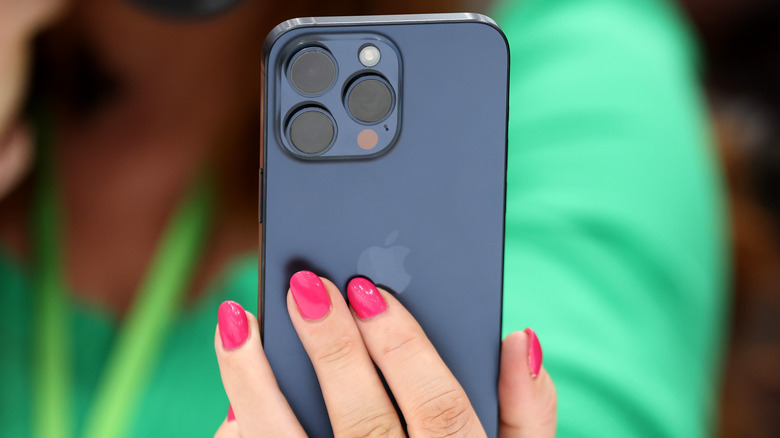
Justin Sullivan/Getty Images
The next wave of iPhones are barely a few weeks away, and it seems there are a few hardware surprises on the table for folks eying Apple’s upcoming «Pro» iPhones. Now, Apple plays it relatively modest when it comes to generation over generation design changes. But from what we’ve compiled across the scores of leaks and speculations so far, the iPhone 16 Pro pair will serve a few notable updates, both inside and out.
Advertisement
Unlike what Google did with the Pixel 9 series this year — expanding the line-up from two to four flagships in one go — Apple seems to harbor no such dramatic ambitions. As usual, we are in for two flagship phones, tentatively named the iPhone 16 Pro and the iPhone 16 Pro Max. The customary processor upgrade is to be expected and a fresh palette of color options, as well, tagging alongside a handful of camera upgrades.
Maybe a new physical camera button to raise the phones’ appeal among mobile photography enthusiasts? Yeah, that too. But as it goes, all the information we have on the iPhone 16 Pro pair come from varied sources with a mixed track record with accuracy. Needless to say, process them with a healthy dose of skepticism.
Advertisement
A meaningful button
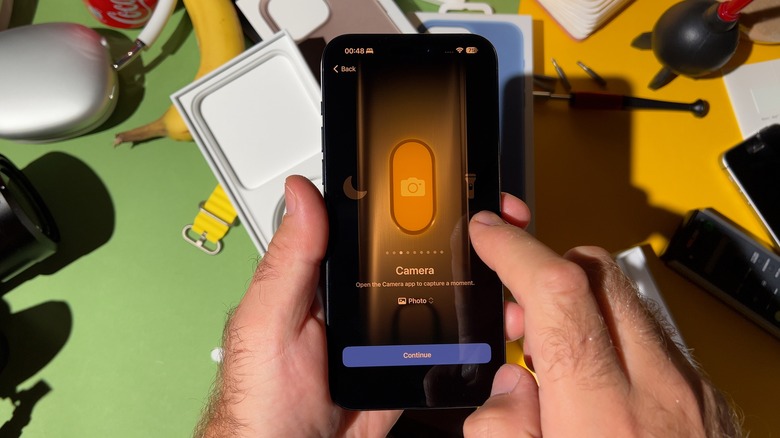
Hadrian/Shutterstock
Apple is most likely repeating a familiar design once again, but there might be a few subtle changes. Subtle, as in adding another physical button on the side, in the same fashion as the Action Button that arrived with the iPhone 15 Pro duo. Rumors suggest the arrival of a Capture Button on the iPhone 16 Pro, sitting on the same edge as the power button. But here’s the interesting part. This button will also be pressure and touch sensitive. It’s not going to be a solid-state button, unlike what was rumored for the current-generation iPhones, and would still follow the trusty clicky press format.
Advertisement
A quick tap will reportedly trigger focus lock, long-pressing will shift to video recording, while swiping on it will make zoom level adjustments. If the Action Button is any indication, Apple will likely let users customize the tasks assigned to this new capture button. Apple has reportedly moved around the antenna assembly underneath the phone’s chassis to accommodate this new two-stage physical shutter button on the right edge. The inclusion of a new physical button means you’ll have to fork out extra cash for buying protective cases.
Brighter next-gen OLED screens
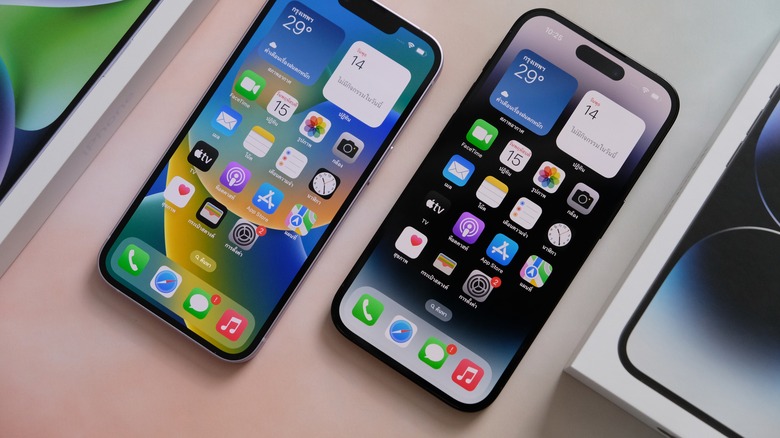
Framesira/Shutterstock
The rumored bump in the iPhone 16 Pro pair’s dimensions has a functional purpose. Apple is said to be stretching the chassis of its next flagship phones to make space for a larger display. The iPhone 16 Pro will reportedly come equipped with a 6.3-inch display, up from the 6.1-inch panel we saw on the iPhone 15 Pro. The iPhone 16 Pro Max’s display touches a massive 6.9 inches across, a healthy 0.2-inch bigger than the 6.7-inch panel on the iPhone 15 Pro Max.
Advertisement
Apple is reportedly using a technology called the Border Reduction Structure (BRS), which essentially adjusts the placement of circuritery and wires close to the phone’s edges. This technology allows for reduction in bezels sizes and fitting a larger active display. According to leakster IceUniverse, the iPhone 16 Pro could feature the thinnest bezels on any smartphone out there. Now, that’s definitely great news if you are preoccupied with the notion of sleek looks, but a healthy share of smartphone users out there argue in favor of at least some bezels to offer a secure grip and reduce chances of accidental touches alongside the edges.
On the more practical side of things, the iPhone 16 Pro series will reportedly employ Samsung’s next-gen M14 OLED panel. According to ETNews, the new panels are about 20% brighter, raising the SDR brightness figures to 1,200 nits. We are hoping Apple adds more granular controls for display optimizations, as well.
Advertisement
Leading the way with cameras
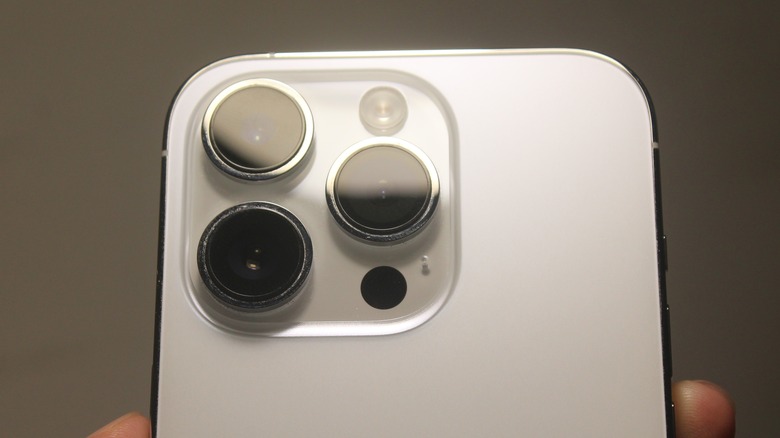
Kafka Ibram/Shutterstock
The most exciting set of rumored iPhone 16 Pro upgrades are centered around the imaging hardware. The main 48-megapixel snapper on the iPhone 16 Pro Max will reportedly be an exclusive, apparently modeled after Sony’s IMX903 sensor with upgrades to its stacking architecture and larger sensor size, as well. The more notable tweak is reserved for the secondary camera.
Advertisement
For the past few generations, Apple has supplied its phones with a 12-megapixel ultra wide-angle camera. That trend should change in 2024. According to reports originating out of China, the iPhone 16 Pro and its Max version will switch gears and offer a 48-megapixel sensor for ultrawide capture. If the current-gen iPhones are anything to go by, we are looking at pixel-binning as one the underlying imaging tricks to deliver lower-resolution (and smaller in size) images, alongside the facility to capture 24-megapixel composite pictures, as well.
The smaller iPhone 16 Pro trim could get a zoom upgrade as well. So far, the 5x optical zoom capability has been limited to the «Pro Max» iPhone, while the iPhone 15 Pro only delivers 3x optical zoom range. This year, the iPhone 16 Pro and the iPhone 16 Pro Max will both serve 5x optical zoom capability, according to Korean outlet The Elec. To further boost the image quality, Apple is reportedly adding a new anti-reflective coat to the camera assembly to reduce glare, streaks, and ghosting artifacts, in hopes of achieving more accurate and pristine quality images.
Advertisement
The return of a legendary shade
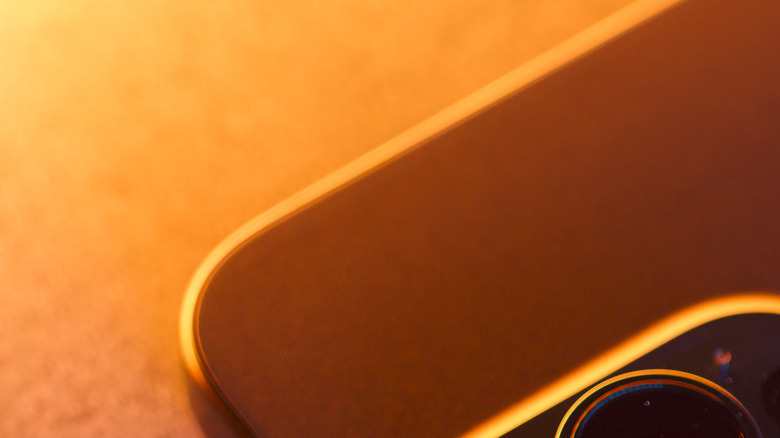
Cesare Ferrari/Getty Images
If you were hoping that Apple will finally jazz things up and deliver a fresh design language on the iPhone 16 Pro, it seems you’re in for some fat disappointment. The iPhone 16 Pro pair will carry virtually the same design as its direct predecessor and the same fundamental schematic that we first saw on the iPhone 11 Pro series over half a decade ago. After all, if it ain’t broke, don’t fix it, right? Well, that’s only true to a certain extent, and definitely a hard pill to swallow considering the amount of money one plonks on a «Pro» Apple smartphone, only for it to look like an iPhone that was launched five years ago.
Advertisement
Hey there iPhone 16 Pro and Pro Max. (Dummy units) pic.twitter.com/gUdM2ZlVK6
— Jon Rettinger (@Jon4Lakers) May 10, 2024
Notably, the iPhone 16 Pro and its Max version will be taller and wider than their respective predecessors. We are also hearing rumors of Apple embracing a new manufacturing technique to achieve a frosted glass look on the rear shell. The company has also reportedly slimmed down the magnetic ring that forms the backbone of MagSafe charging system. As far as color options go, there’s chatter out there about the return of «rose gold,» while a few other reports mention a new bronze shade being in the pipeline. Leaked images of purported dummy units also depict the iPhone 17 Pro in black, silver/white, and titanium silver shades.
Advertisement
Performance meets AI lift

Mehaniq/Shutterstock
The silicon situation is where things get interesting. Citing information gleaned from software code, MacRumors claims that all four iPhone 16 phones will come armed with the same A18 silicon. That’s quite a departure. Take for example the iPhone 15 Pro pair, which relies on the A17 Pro processor, while the more affordable iPhone 15 models put their faith in the A16 silicon. The biggest difference between the two was an extra GPU core on the A17 Pro silicon.
Advertisement
Now, it’s interesting to see Apple supposedly using the same 3 nanometer-based A18 silicon on all four iPhone 16 trims. However, it is entirely plausible that the particular A18 flavor for the iPhone 16 Pro pair could come with a «Pro» branding to set it apart. Whether it will add an extra CPU or GPU core — or none at all — remains to be seen. However, according to analyst Jeff Pu, the A18 silicon will match the core count on the A17 Pro. On the positive side, Apple could give a big push to the onboard AI hub.
As per Taiwan’s Economic Daily News, the Neural Engine destined for the iPhone 16 series packs a «significantly» higher number of cores. For example, the one inside the iPhone 15 Pro features 16 cores. A souped up Neural Engine makes sense, gives the kind of ambitious on-device AI promised with Apple Intelligence and the upcoming iOS 18 update. Let’s hope the added firepower opens the doors for more AI-driven Pixel 9-esque camera tricks on the Apple smartphones.
Advertisement
A few additional niceties
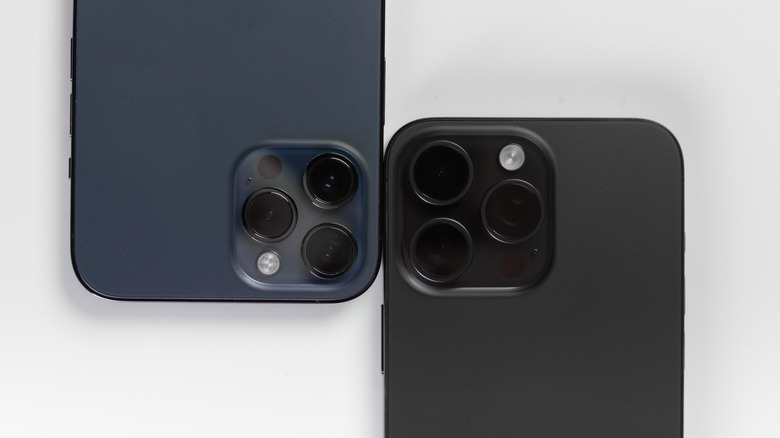
Ivan_Shenets/Shutterstock
This year, the iPhone will reportedly make yet another massive leap. Apple is said to have finalized battery stacking technology for the iPhone 16 Pro, which could enhance the battery capacity as well as longevity. Notably, charging speeds will also get a much-needed boost, in both wired and MagSafe wireless formats.
Advertisement
According to ITHome, the iPhone 16 Pro could touch the 40W wired charging mark, nearly double that of its predecessor. Moreover, the pace of MagSafe wireless top-up could also reach 20W. Although Apple still won’t be close to the benchmark set by the likes of OnePlus, it’s a welcome upgrade, one that iPhone users have been demanding for years.
Analyst Ming-Chi Kuo also claims that Apple is shifting to a new design that increases the battery density. More importantly, the new design also makes these batteries more accessible to ease repair and replacement. The company is said to be working on a technique called «electrically induced adhesive debonding» that would reduce the dependence on heat-based adhesives, which is great news for DIY repairs, as well.
Advertisement
To go with the battery upgrades, Apple is also said to have reimagined the thermal system. Specifically, the iPhone 16 Pro might adopt a graphene-based system that is more efficient at heat dissipation. So far, we haven’t come across any credible leaks regarding the asking price of the upcoming phones. But given the company’s release schedule, a September launch seems to be on the horizon.